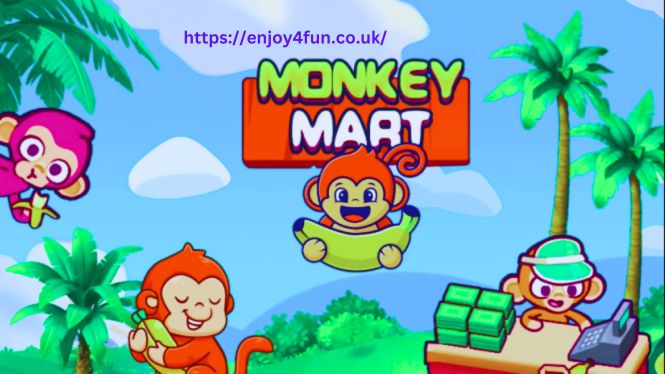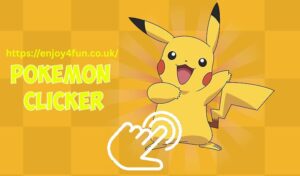Monkey Mart GitHub is a popular 2D simulation game in which players manage a grocery store, expanding their inventory and handling customers’ needs. Created by TinyDobbins, the game has quickly captured the attention of casual gamers and developers alike. Thanks to the game’s availability on GitHub, developers now have the opportunity to explore, modify, and enhance it, taking advantage of its open-source nature.
In this guide, we’ll explore everything you need to know about Monkey Mart GitHub repositories, how to contribute to the game, customize it, and utilize it for your projects. Whether you’re a game development enthusiast, a budding developer, or a seasoned coder, this guide is your one-stop resource for everything related to Monkey Mart on GitHub.
What is GitHub, and Why is it Important for Game Developers?
GitHub is a platform for version control and collaborative development. It allows developers to store code, manage projects, track changes, and collaborate seamlessly. Using Git as its underlying technology, GitHub provides a robust infrastructure for open-source and private projects.
Why Use GitHub for Game Development?
- Collaboration: Work with other developers on the same project.
- Version Control: Track changes, roll back to previous versions, and manage different branches of your project.
- Learning: Study existing code, contribute to projects, and improve your skills.
- Community Support: Engage with a large community of developers who can provide feedback, report issues, and share insights.
For Monkey Mart, GitHub provides an excellent platform for exploring the game’s source code, creating custom mods, or even enhancing its functionality.
Finding Monkey Mart on GitHub
You’ll need to find the appropriate Monkey Mart GitHub repository to get started. While TinyDobbins’s official version is not openly available on GitHub, many developers have created similar versions, mods, or inspired projects available on the platform.
Steps to Find Monkey Mart Repositories:
- Go to GitHub.com.
- Use the search bar and type “Monkey Mart.”
- Filter the search results by repositories.
- Browse through repositories and find the one that best fits your needs.
Popular Monkey Mart-Inspired Repositories
Some repositories may include:
- Monkey Mart Clones: Replicas or similar game mechanics developed by enthusiasts.
- Monkey Mart Mods: Custom modifications to enhance or change the game’s features.
- Tutorial Projects: Step-by-step guides showing how to create similar games.
Always read the repository’s README.md file to understand its purpose and functionality.
How to Download and Run Monkey Mart from GitHub
- Clone the Repository
To download a Monkey Mart project, you need to clone the repository:
- Using Git Command Line:
- bash
- Copy code
- git clone https://github.com/username/repository-name.git
- Using GitHub Desktop:
- Open GitHub Desktop.
- Click on File > Clone Repository.
- Enter the repository URL and select the destination folder.
- Install Dependencies
Most game projects have dependencies that must be installed before running the game. Check the README.md or documentation for specific instructions. Common dependencies might include:
- Game Engines: Unity, Godot, or Pygame.
- Libraries: Pygame for Python, Phaser for JavaScript, or other relevant game development libraries.
- Run the Game
Once dependencies are installed, run the game with:
- Python:
- bash
- Copy code
- python main.py
- Unity:
- Open the project in Unity Hub and click Play.
- Web-Based:
- Open the index.html file in a browser if it’s an HTML5 game.
Customizing Monkey Mart: Tips and Techniques
One of the most exciting aspects of accessing Monkey Mart on GitHub is the ability to customize it. Here are some ways you can modify the game:
- Change Graphics and Assets
- Modify Sprites: Replace character and object images.
- Update Backgrounds: Add new backgrounds or environments.
- Use Tools: Tools like Aseprite or Photoshop can help edit pixel art.
- Enhance Game Mechanics
- Add New Features: Introduce new items, levels, or challenges.
- Modify Player Abilities: Adjust player speed, inventory size, or customer behavior.
- Implement Power-Ups: Create new power-ups to enhance gameplay.
- Improve UI/UX
- Update Interfaces: Create cleaner menus, HUDs, and customer interactions.
- Optimize for Mobile: Adjust controls to ensure the game runs smoothly on mobile devices.
- Fix Bugs and Optimize Performance
- Debugging: Use tools like Visual Studio Code and Debug Console to fix issues.
- Performance Optimization: Refactor code to improve efficiency and reduce lag.
Contributing to Monkey Mart Projects on GitHub
How to Contribute
- Fork the Repository: Create a copy of the project in your own GitHub account.
- Clone Your Fork: Download the forked repository to your local machine.
- Create a New Branch:
- bash
- Copy code
- git checkout -b new-feature
- Make Changes: Modify the code, graphics, or documentation.
- Commit Changes:
- bash
- Copy code
- git commit -m “Add new feature.”
- Push Changes:
- bash
- Copy code
- git push origin new-feature
- Submit a Pull Request: Request to merge your changes into the main project.
Contribution Guidelines
Always check the Contribution Guidelines in the repository. They often include:
- Coding standards.
- Issue tracking processes.
- Code of conduct.
Learning from Monkey Mart GitHub Projects
If you’re new to game development, analyzing Monkey Mart GitHub projects can provide valuable insights:
- Understand Game Loops: Learn how game loops handle updates and rendering.
- Master Collision Detection: Study how collisions between characters and objects are managed.
- Explore AI Behavior: See how customer AI responds to player actions.
Conclusion
Monkey Mart on GitHub offers endless possibilities for game developers and enthusiasts. Whether you’re looking to play, modify, or contribute, exploring these repositories is a fantastic way to enhance your skills and creativity. By leveraging GitHub’s collaborative features, you can join a vibrant community of developers and take your game development journey to new heights.






